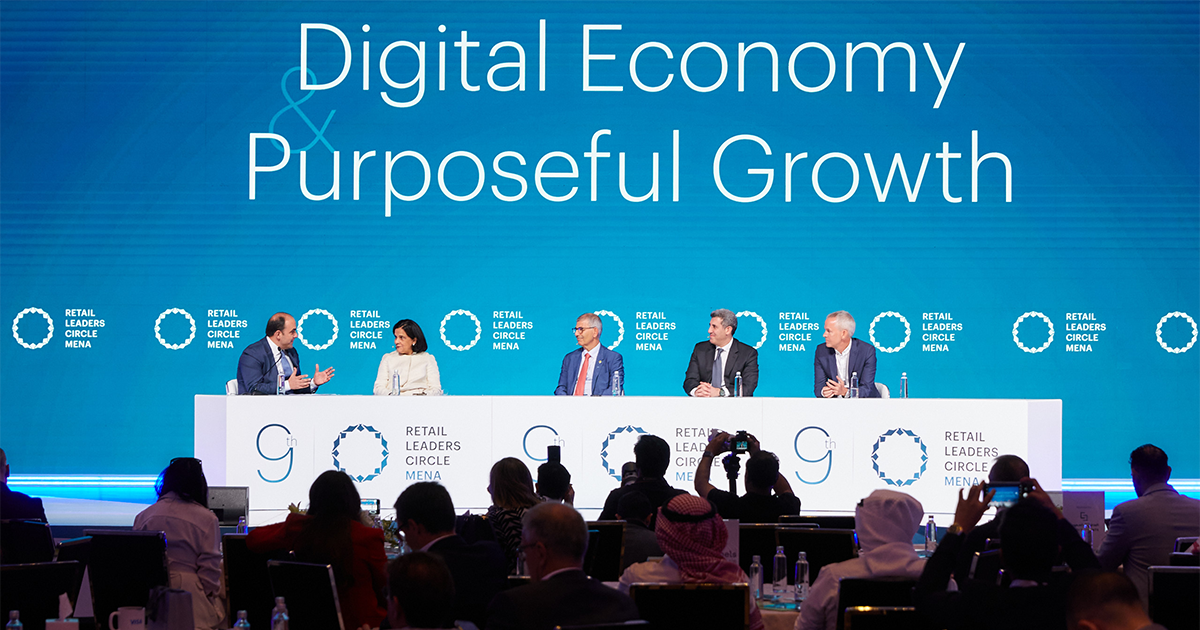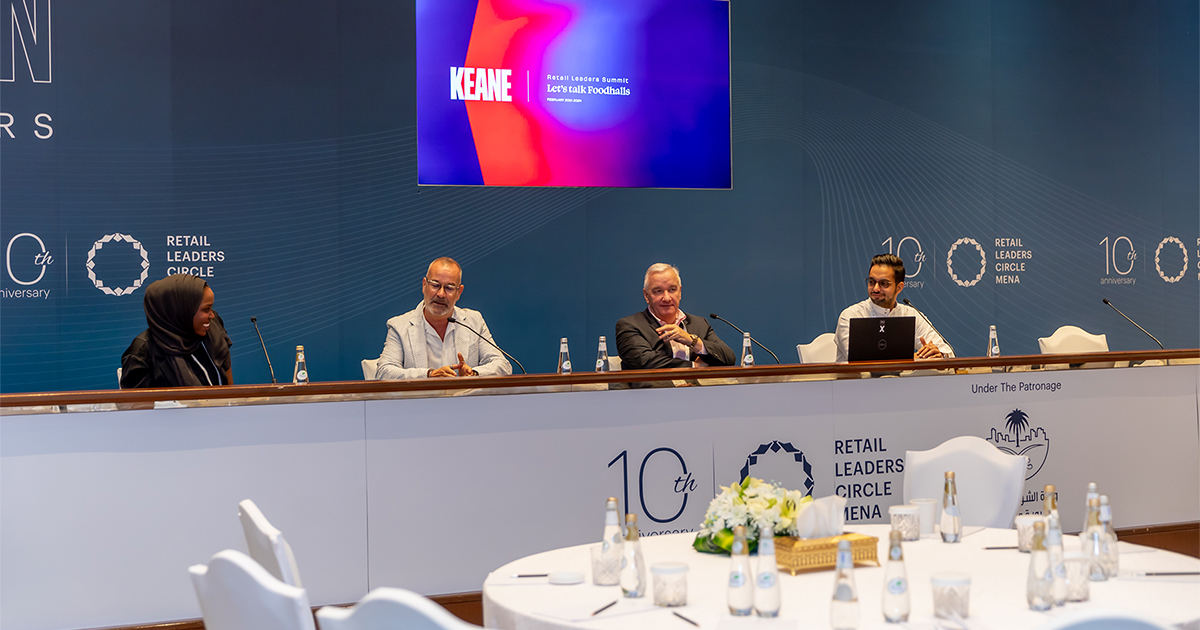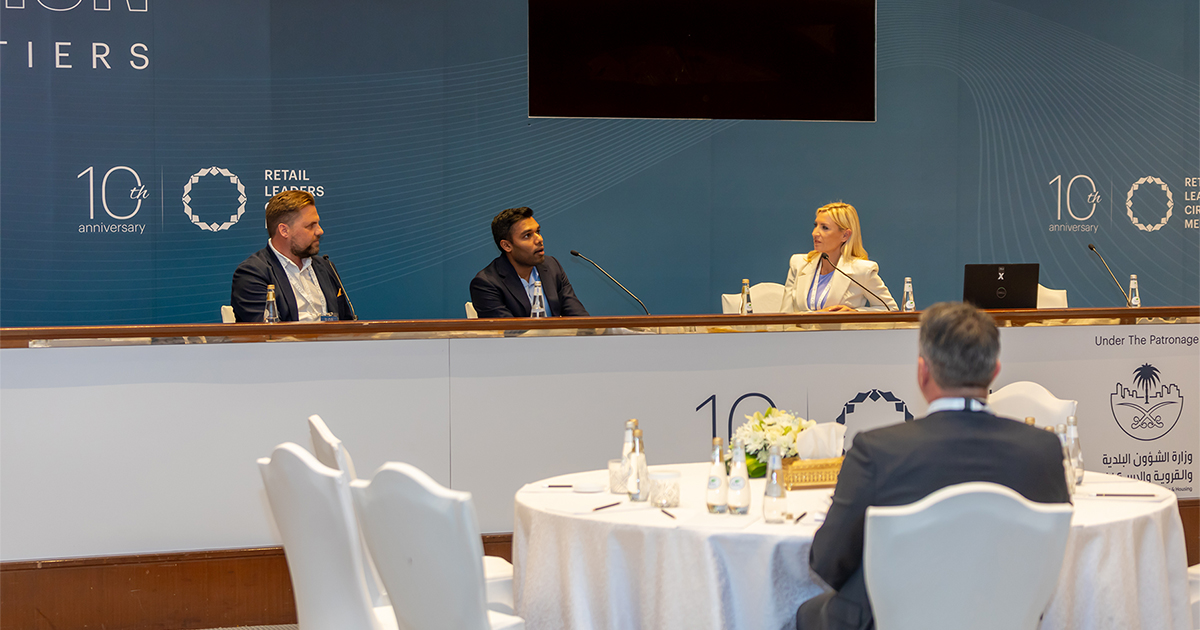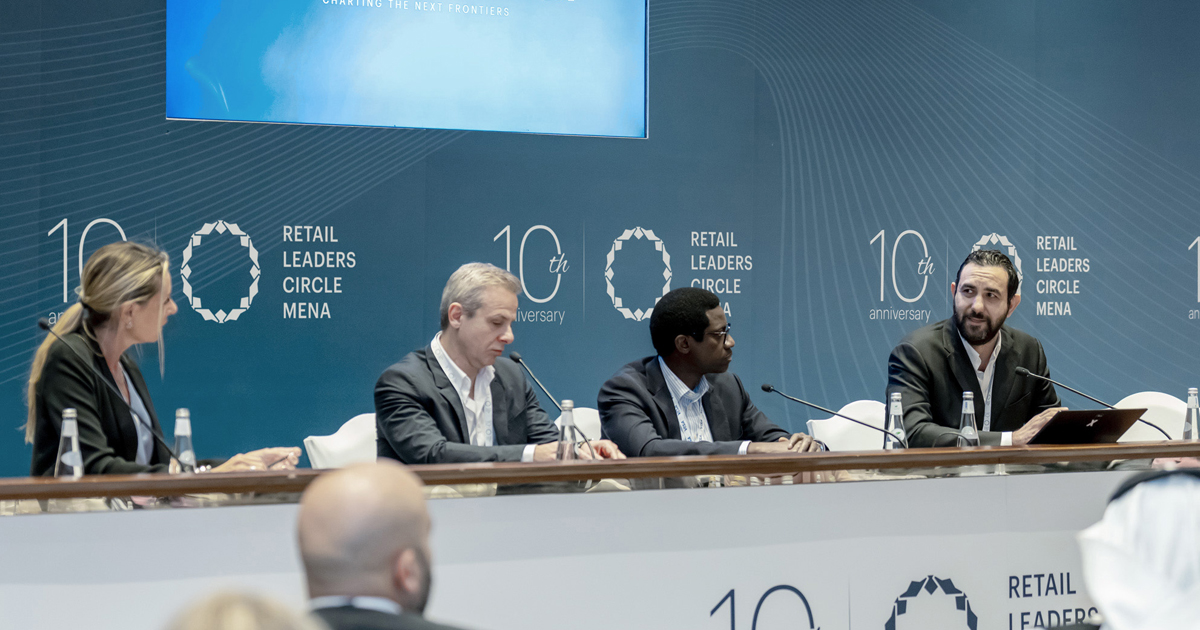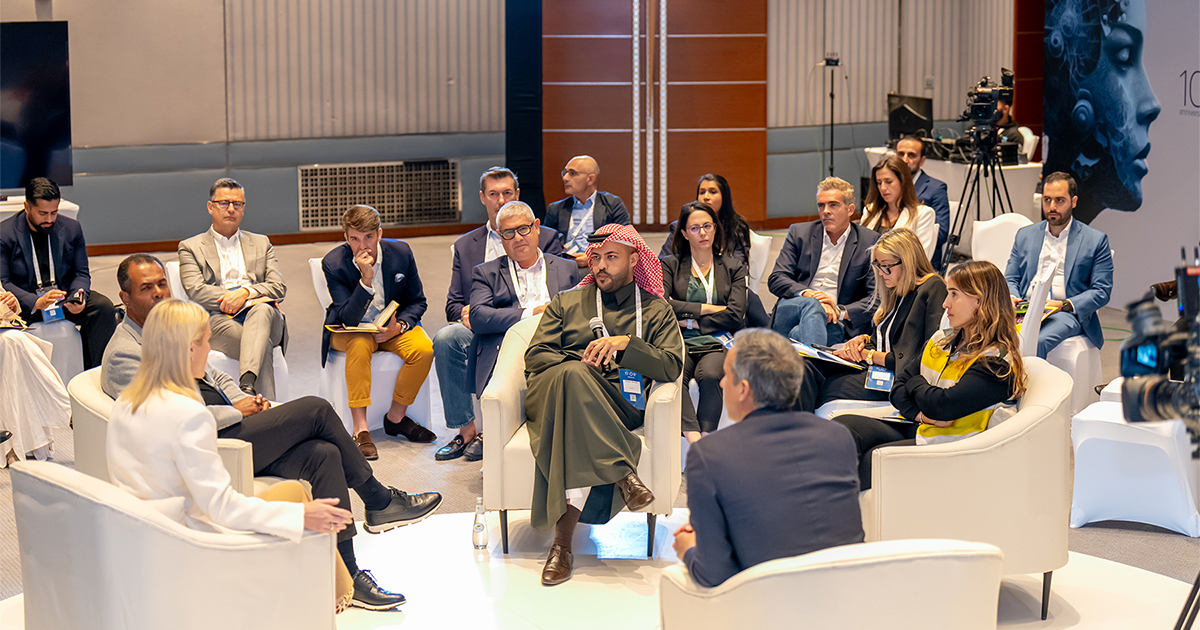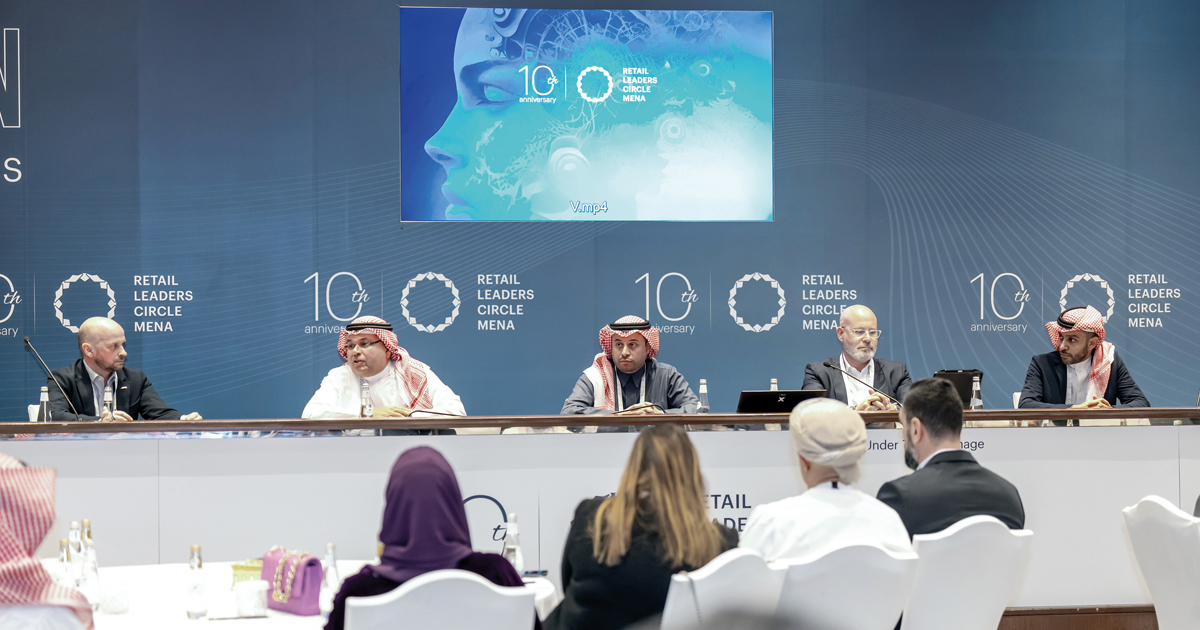In a landmark moment, , the leaders of the region’s major retail groups, Renuka Jagtiani, Chairwoman, Landmark Group, John Hadden, CEO, Alshaya Group, Mohamad Mourad, Managing Director & CEO, Cenomi Group and Patrick Chalhoub, Group President, Chalhoub Group, came together for the first time at the Ninth Retail Leaders Circle MENA Summit to share their perspectives on the current state of retail in Saudi Arabia and the wider region, and discuss how the industry, collectively, could drive positive, purposeful growth. This panel was moderated by RLC’s Chairman, Panos Linardos.
The Business Environment
There is no question that retail opportunity in the region is immense. In Saudi Arabia especially, the development of new mega-projects coupled with the young, dynamic population, is providing retailers with the opportunity to bring new, exciting experiences to the market.
Yet significant challenges remain. Consumer spending power is being affected by inflation, increased energy costs and higher taxation, which has implications for disposal income. The proliferation of cross-border retailers is skewing the competitive landscape. And differences in regulation across sectors are creating additional challenges and burdens for retailers.
The imperative for retailers is to get closer to a consumer whose expectations are far ahead of what the sector is actually delivering. This means creating new destinations and experiences that appeal to young consumers, offering a seamless journey across physical and digital, and working collaboratively across the public and private sectors to improve infrastructure and the wider business environment.
The Talent Challenge
Talent attrition is a challenge for all businesses. Talent in Saudi Arabia tends to be more transactional than mission-driven, a function of the comparatively small talent pool and the demand for qualified Saudi talent. Among expats, the general trend is to come to the market for a few years, save money and leave. This is not a healthy situation.
The imperative for retail is to provide an exciting, engaging workplace for employees that are both highly motivated to be part of retail and also loyal to the organizations they work for. Retailers need to be sure that they are making meaningful career opportunities available at all levels, from entry-level onward. The big differentiator for companies is the culture of the organization, the right benefit offer and a strong vision for the future.
The majority of retail customers are women, and the opportunity to have women serving women is potentially game-changing. Some retail brand outlets in Saudi today are managed entirely by women. This is contributing to a stronger sense of loyalty and dedication, giving women a higher level of confidence and independence, creating role models for others entering the sector and increasing the overall talent pool.
 There are areas that are nice to collaborate on. Things like having a council together, identifying the biggest problems, having one voice with the government. But there are areas where we really have to. If we want to build world class e-commerce infrastructure in Saudi Arabia, it has to be through collaboration.
There are areas that are nice to collaborate on. Things like having a council together, identifying the biggest problems, having one voice with the government. But there are areas where we really have to. If we want to build world class e-commerce infrastructure in Saudi Arabia, it has to be through collaboration. 
Mohamad Mourad
Collaboration
Collaboration across retailers, developers and the government is essential in shaping the future of the retail sector, not just as a whole but also at the category level. The sector today is not as joined up as it needs to be and there is a need for more dialogue among the different stakeholders.
Historically, companies in the region have not shared a lot, but there is a willingness to collaborate if the right models can be identified to build dialogues across the private and the public sectors. As an ecosystem, the focus needs to be on increasing transactions, improving customer experiences and pursuing common goals that benefit everyone.
Collaboration is in the DNA of retailers, especially groups that represent multiple brands and work with a variety of developers It’s not only about having a single voice for retail to the government, it’s also about collaboration in the market. In e-commerce, especially, no single player can do it alone and remain viable. The path to sector growth is thought collaboration and partnership across the entire ecosystem.
Enhancing the business environment
There is a need to energize the retail sector in Saudi Arabia, and one way to do that is by leveling the playing field to make it easier and more attractive for large players to invest. Currently the sector in Saudi is broken into three areas: bricks and mortar, e-commerce, and cross border. Each area of the market has different regulations, the majority of which fall on the shoulders of bricks and mortar.
Physical retail carries the brunt of the cost, from building and managing locations to hiring local employees to paying VAT and import duties. Cross border players, by comparison, don’t need to maintain local facilities, hire local staff or pay the same level of taxation. So the market is skewed in their favor.
Everyone wants a competitive environment within which to build a business as best they can. The market is big enough to support many different players. However, the regulatory balance is skewed. The amount of new retail developments underway in Saudi requires a lot of investment and will bring world class retail to the door of the Saudi customer. Regulatory support is needed to balance the environment and create a level playing field for large companies that are bullish about investing.
 I see a country which is evolving and changing. And if we change with it, and that change is not going to be easy or as quick as we all think, I see an opportunity for the future.
I see a country which is evolving and changing. And if we change with it, and that change is not going to be easy or as quick as we all think, I see an opportunity for the future. 

